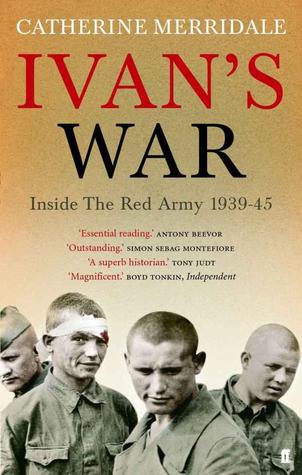More on this book
Community
Kindle Notes & Highlights
Read between
April 4 - April 20, 2017
A foreigner could hardly move in the Russia of the 1930s without attracting attention. Spies who attempted to blend with the crowds found that they could not even manage the new diet, let alone Soviet manners. ‘You try to drink an ounce and a half of 40–50% vodka in one gulp without practice,’ one agent complained, ‘or to smoke a cigarette with a cardboard mouthpiece.’11 The vodka made him cough, and when he tried to chase it with hot tea he burned his fingers on the thin, cheap glass in which it had been served. ‘Mistakes,’ an officer in the German intelligence service noted, ‘could cost an
...more
Whatever else Stalin’s regime might lack, it did not begrudge human lives.
Nothing would set the troops apart more than the shared experience of combat. Even the men who tried to talk, to tell their wives or friends, found that they could not bridge the gulf between those who had seen battle and all the rest.
Within a few months, atrocities in East Prussia – Soviet killings, rapes and thefts – would be perpetrated under the concealing cover of a double standard. The same inconsistency applied to the treatment of ‘our’ Jews. When a Russian muttered that the Jews were better dead, it was not quite the same as when a fascist did it. In 1944, the NKVD heard men muttering that ‘Hitler did a good job, beating up the Jews.’110
But the message was unmistakable. ‘Stalin’s order’, as the men soon called it, demanded restraint. It was read out to the troops at their political meetings, and German women learned to invoke it like a kind of spell to deter their Ivans. It does not seem to have made very much difference in Berlin. When the men discussed it, the diarist claims, ‘their eyes twinkled slyly’.124 The only thing that was guaranteed to restrain them – apart from the barrel of an officer’s Nagan – was the absolute priority of combat.
It was the first straw in the wind, the first hint that Germany’s defeat would not mean the end of military service for Red Army troops. They had fulfilled their duty, as Belov had said, not flinching even to the last, but now the first of many disappointments loomed. It would not be a few weeks but some months, and even years, before most men would see their wives and families again. As for their hopes, the dreams that they had nurtured through long evenings of talk and writing, it would be a longer wait still. As Kopelev had understood as he watched the flames rising above Neidenburg, it was
...more
The superpowers were destined to be enemies for decades, but for a while their soldiers seemed to be making friends. The attraction was based on respect, gratitude, and complementary social skills. American troops enjoyed the Russians’ spontaneity, their talent for impromptu drinks and music.26 Red Army men were grateful for the razor blades, the cigarettes, the bright packets of gum. For Soviet utopians, too, Chicago was a prototype, these square-jawed, healthy men the models for their own children to come. America was starting to look dangerously glamorous. The devil, they say, always has
...more
The foreman of a Siberian mine assured a member of his work contingent that ‘a ton of coal is dearer to us than your life’.54 His hatred drew on bitter roots. Many of the toughs who managed former soldiers had originally been victims themselves. The camps and mines of Siberia were ruled by former kulaks, the peasants whom communism had dispossessed in the early 1930s. Now they could vent their rage on disgraced soldiers. ‘As soon as your officers’ backs are turned,’ one of them hissed, ‘we’re going to kill you with hunger and hard labour. And you deserve it because in 1929/30 you were the ones
...more


